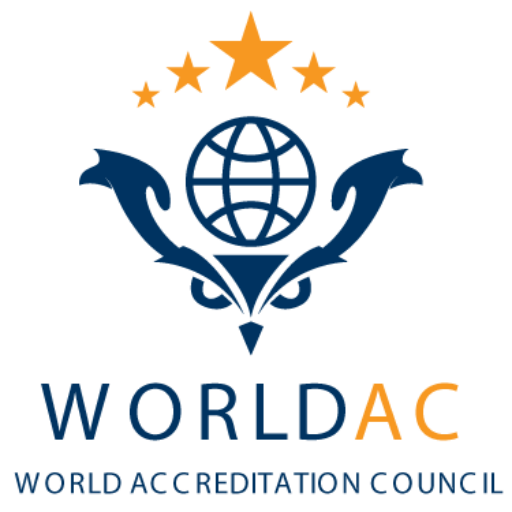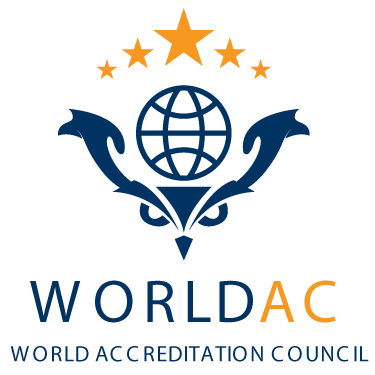Accreditation Process
Accreditation Process
WORLDAC is an independent accreditation body that evaluates the compliance of educational institutions with international quality standards. The accreditation process helps institutions certify their educational quality while providing a reliable educational environment for students and stakeholders. The process is transparent, accessible, and structured to encourage the enhancement of educational standards.
1. Accreditation Phases:
Application and Preliminary Assessment
- The institution officially submits its accreditation application.
- The WORLDAC team reviews the application to evaluate compliance with fundamental criteria and provides information about the process.
2. Documentation and Self-Assessment:
- The institution prepares a self-assessment report covering areas such as educational programs, academic staff, management structure, and student support services.
- WORLDAC analyzes the submitted documents, identifies any gaps, and provides feedback on necessary adjustments.
3. Online Evaluation and Interview Process :
- The institution’s documents and reports are thoroughly examined by a specialized evaluation team.
- Online meetings and interviews are conducted with administrators, academic staff, and relevant units to support the process.
- The learning environment, curriculum alignment, student experience, and management processes are assessed based on the submitted documents.
- Areas for improvement are identified, and the institution receives recommendations for enhancement.
4. Accreditation Decision:
- Based on the reviews, the institution’s compliance with the specified quality standards is evaluated.
- Institutions that receive accreditation approval are awarded the WORLDAC accreditation certificate and are added to the official accreditation list.
- Institutions must undergo re-evaluation processes at regular intervals to maintain their accreditation.
5. Interview or Site Visit:
If deemed necessary, a Commission Member may request an interview (online or face-to-face) with the appointed representative of the applicant institution or arrange a site visit. This step is usually taken if the material provided by the applicant is insufficient for a clear judgment or if further clarification is needed about specific accreditation standards.
- Travel costs and related expenses for the interview or site visit will be paid by the applicant institution.
- The goals, schedule, and budget for the interview or site visit will be settled in advance between the WORLDAC Secretary and the applicant institution.
- Typically, a 1–2-hour online interview or a one-day visit is sufficient to resolve concerns.
6. Announcement:
The WORLDAC Secretary will communicate the results of the initial evaluation to the members of the Commission. Commission members have 30 days from the announcement date to review and amend the conclusions and grades of the initial accreditation report.
7. Conclusion:
The WORLDAC Secretary will communicate the accreditation status results and any grade amendments from the Commission to the president of WORLDAC. The president will review the accreditation report to address any discrepancies that may have arisen during the grading process. The final accreditation grades are endorsed by the president of WORLDAC.
- If full accreditation is granted, the WORLDAC Secretary will issue the corresponding accreditation certificate.
- In all cases, the detailed accreditation report will be sent to the applicant.
Advantages of Accreditation for the Institution
- International Recognition: Ensures that graduates’ diplomas and certificates are valid worldwide.
- Assurance of Educational Quality: Encourages the sustainability of the institution’s educational standards.
- Increased Trust from Students and Parents: Enhances the institution’s academic reputation and student satisfaction.
- Competitive Advantage: Accredited institutions are in a stronger position to attract international students and academics.
The WORLDAC accreditation process offers institutions a structure that encourages the elevation of quality standards without placing undue pressure. The online evaluation method makes the process more accessible and flexible, supporting the development of educational institutions.
Important Notes About WORLDAC Accreditation:
Not a Substitute for Legal Regulations:
Accreditation by WORLDAC is a voluntary, non-governmental peer review process. It confirms that the institution meets WORLDAC’s educational standards but does not replace legal authorization, recognition, or regulation by local government laws.Institutional Accreditation:
Accredited institutions are evaluated as a whole or by specific programs offered. However, this accreditation does not substitute for professional licensing requirements.Global and International Scope:
WORLDAC focuses on educational quality from a global perspective, respecting institutional autonomy and maintaining a non-discriminatory policy. Academic mobility and credit transferability for accredited institutions are subject to the policies of the receiving country or institution.


